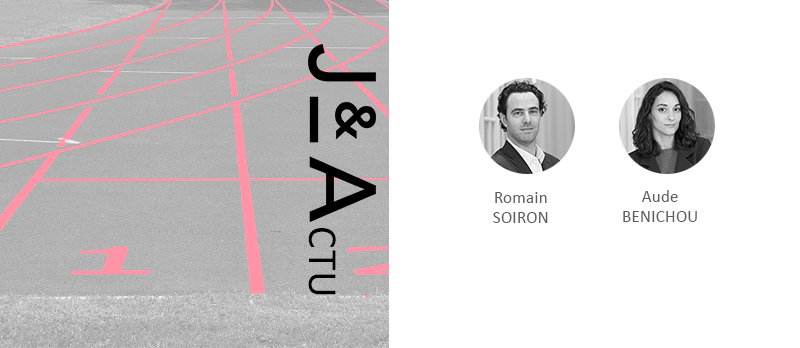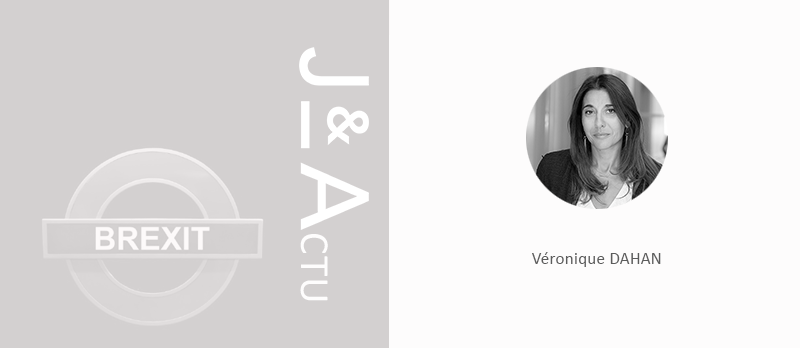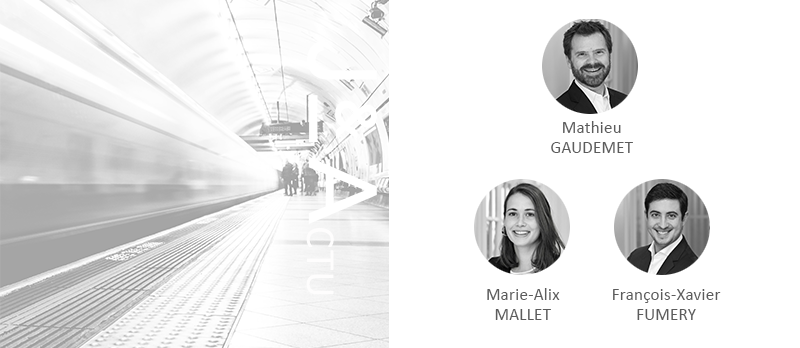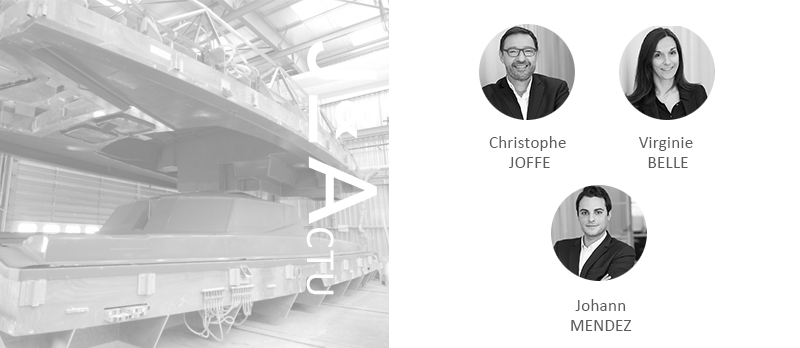Read the article on The Law Reviews Website
I ORGANISATION OF SPORTS CLUBS AND SPORTS GOVERNING BODIES
The highest governing body of sport in France is the French Ministry of Sports, which is authorised to grant to the federation of any sport discipline the right to organise and regulate the sport, through a delegation of public service. This delegation of public service is granted to the federation for a period of four years and is indefinitely renewable. For instance, since 1985, the French Football Federation (FFF) has been granted such delegation by the Ministry of Sports.
A federation is authorised, but not required, to create a professional league to manage the professional tournaments, as well as non-professional leagues or committees to manage all the other tournaments at a local level.
Sports clubs willing to participate in competitions organised by the federation or its decentralised bodies must be affiliated to the federation overseeing these competitions.
The sports clubs, the federation and its decentralised bodies are required to be non-profit organisations governed by the French law of 1 July 19012 and its decree of 16 August 1901.
That being said, clubs that participate in events generating revenues greater than €1.2 million annually, or that employ athletes receiving a total income exceeding €800,000, are required to create, in addition to the non-profit organisation, a commercial corporation, which will manage its commercial activities.3 In accordance with Article L.122-2 of the French Sports Code, a ‘sport corporation’ must take one of the following legal forms:
- a limited liability company with a sole member (a single-owner limited liability sport company (EUSRL));
- a limited liability company with a sports object (SAOS);
- a professional sports limited company (SASP);
- a limited liability company;
- a limited company; or
- a simplified joint-stock company.4
The federation and the professional league must comply with standard by-laws imposed by the lawmaker. In particular, it requires the federation and the professional leagues to adopt a set of disciplinary and anti-doping regulations.
In addition, some sports corporations (i.e., SAOS, EUSRL and SASP) are under the obligation to comply with standard by-laws setting out various rules regarding shareholders and corporate governance.
In accordance with Article L.122-7 of the French Sports Code, an individual is prohibited from managing two sports companies participating in the same discipline, and controlling or having a major influence (within the meaning of the French Commercial Code) over two sports companies of the same discipline (male and female activities of a given discipline being construed as one discipline for the purpose of article L.122-7).
II THE DISPUTE RESOLUTION SYSTEM
i Access to courts
Appendix I-6 of Articles R.131-3 and R.132-7 of the French Sports Code set out the disciplinary proceedings to be implemented by sports federations to settle disputes involving clubs and players.
Disciplinary proceedings must comply with the principle of fair trial as set out in the French Constitution and in Article 6 of the European Convention on Human Rights. Consequently, all sports federations must respect the parties’ fundamental rights, and, in particular:
- the right to a decision in the first instance and to an appeal;
- the right to an impartial court (members of a disciplinary body who have a personal interest in a specific case may not take part in deliberations, and members of the disciplinary body may not try the same case in first instance and on appeal);
- the right to be judged within a reasonable period;
- the right to a public trial; and
- the respect of the rights of defence (providing for a reasonable amount of time to prepare the defence, right to be assisted by a lawyer, etc.).
The French Sports Code also provides for an alternative dispute resolution process before the French National Olympic and Sports Committee (CNOSF).5 This dispute resolution process is known as ‘conciliation’. The use of this proceeding depends on the common will of the parties involved (except if the conciliation before the CNOSF is mandatory prior to suing before administrative courts).
French civil courts remain accessible to the litigants pursuant to the traditional rules of civil procedure, and administrative courts retain jurisdiction over disputes relating to sports federations or to the application of their by-laws and regulations.
At the international level, certain international federations prohibit the right to seek remedies through state courts in the context of international disputes.
ii Sports arbitration
The Arbitration Chamber for Sports (CAS) was created in 2007 within the CNOSF. Article 2.II.B.1 of CNOSF’s statutes provides that the CAS may resolve a dispute ‘through conciliation or through arbitration’.
Article 19 of the internal regulation of the CNOSF sets out the conditions under which the parties can submit a case before the CAS. First, an arbitration clause may be included in the parties’ agreement whereby the parties expressly consent to the submission of their dispute to the CAS. In the alternative, and once the litigation arises, the parties may subsequently agree to submit the case to the CAS, even if no arbitration clause was included in the agreement.
The jurisdiction of the CAS is, however, limited, as all disputes relating to a regulated sport and involving the exercise of public service prerogatives have to be brought before the administrative courts. The CAS, therefore, mainly retains jurisdiction over purely economic disputes, such as sponsoring or broadcasting agreements disputes, transfer fee disputes or disputes among athletes, clubs and sports federations.
Unlike in a conciliation proceeding, the CAS makes a final, binding and unappealable ruling, which is enforceable by law.
There are also independent institutions, such as the Court of Arbitration for Sport (TAS), which is an international arbitration body based in Lausanne with jurisdiction over disputes involving arbitration clauses calling for the TAS’s jurisdiction, and over appeals of decisions issued by international sports federations.
iii Enforceability
Decisions issued by French civil or administrative courts, or arbitral rulings issued by the CAS, are directly enforceable within the French jurisdiction. The parties are bound by those decisions with no need for additional formalities.
To enforce an international decision in France (i.e., a decision issued by a court from another country), the decision must be recognised by the exequatur proceeding.6 This proceeding includes a high-level review by the French judge who will examine whether the foreign judge had jurisdiction over the matter.7 To pass this test, the dispute must present a serious link with the foreign state or must have been validly chosen by the parties. Within the exequatur proceeding, the judge also examines whether the proceedings have been conducted ‘properly’ (i.e., that the respect of the right of defence was insured). Finally, the judge must verify whether the decision complies with the French international public policy rules. That said, some regulations of French federations specifically provide that international decisions with effects on national tournaments may be enforced directly without any exequatur proceedings before a French court.
III ORGANISATION OF SPORTS EVENTS
i Relationship between organiser and spectator
The organiser and the spectator are bound by a contract through the sale of a ticket.
The general terms and conditions governing the sale of tickets must comply with French consumer rules and regulations – where the buyer is considered to be a ‘consumer’.
The General Direction for Fair Trading, Consumer Affairs and Fraud Control (DGCCRF) conducted a major investigation in 2019 to enforce the French consumer laws regarding online and in situ ticketing. The investigation revealed several significant breaches.8 Many organisers failed to provide the mandatory pre-contractual information to consumers; in particular, regarding the price of the ticket. French consumer laws consider that a contract shall only be validly concluded if the consumer has the possibility to verify the details of its order and its full price before placing the order.9 However, the DGCCRF investigation has shown that the ticket price displayed often fails to include the additional service charges fees and that those fees only appear during the order process.
In addition, the investigation revealed clauses relating to the non-reimbursement in case of postponement of a sports event. This type of clause may be considered unfair because of the absence of compensation for the damage suffered in the event of a change of date, schedule or place.
ii Relationship between organiser and athletes or clubs
A club seeking to participate in a competition organised by the federation must be affiliated to the federation. This authorisation of affiliation granted by the federation allows the club to participate in competitions, but also imposes the obligation to comply with the federation’s rules and regulations.
These regulations contain sporting rules (e.g., the rules of the game, the format and functioning of the competition) and disciplinary rules (e.g., sanctions against players or clubs), as well as rules protecting the commercial interests of the competition (e.g., sponsors’ brands display obligations).
The French Sports Code also requires the subscription of an insurance policy by the federation,10 which covers damage suffered by the clubs and players taking part in the competition.
iii Liability
According to French law, a person committing a ‘fault’ resulting in damage to another person may be held civilly liable.
With respect to an organiser, a fault may occur, for instance, in the event of:
- failure to keep the sports facilities safe and secure (organisers being bound by a general safety obligation);
- negligence of inspection or maintenance; or
- inappropriate or excessive risk created by the organisation.
With respect to an athlete’s liability, a fault committed by a player against another player during the event is subject to a restrictive interpretation because of the inherent risk stemming from the exercise of the sport. According to this ‘risk acceptance’ theory, a player who wishes to be exonerated must demonstrate that the fault was committed in accordance with the spirit of the game, and that the potential injury was accepted by the injured player.
Regarding the liability to spectators, the organiser can be held liable for injuries caused during sports events owing to security and safety regulation breaches. It must also be stressed that the lawmaker created specific offences applicable to behaviour of spectators during sports events in a sports arena, such as:
- illegal introduction of alcoholic beverages;11
- encouragement of other spectators to hatred or to the commission of violence;12
- display of insignia, signs or symbols promoting racial or xenophobic ideology;13
- possession or use of rockets, artifices or projectiles;14 and
- disturbance of a competition or the endangerment of people’s safety, by penetrating the competition area of a sports arena.15
iv Riot prevention
Under the purview of international and European bodies, French legislation has attempted to prevent riots during sports events. Sports events organisers have the duty to provide security services and obtain if necessary the support of the state police.16 To avoid the introduction of dangerous objects inside the sports arena, French public authorities and organisers may perform physical pat-downs with the spectator’s consent. If the spectator does not consent, the security services may deny him or her access to the arena.
French public authorities can also take several repressive measures against supporters, such as a temporary stadium ban or dissolution of supporters’ associations in case of a risk of serious disturbance to the public order.17
Since 2007,18 persons prohibited from stadiums are listed in the National Stadium Bans Register. This register contains the identities of the persons banned by judicial or administrative decision. The data are retained for five years from the expiry of the most recent measure pronounced.
IV COMMERCIALISATION OF SPORTS EVENTS
The originality of the French system resides in Article L.333-1(1) of the French Sports Code, which states that ‘sports federations and organisers of sports events mentioned in Article L.331-5 are the owners of the exploitation right of the sports events or competitions that they organise.’ This ‘organiser’s right’ is a unique right that can be compared to a copyright as the underlying concept is similar: a person creating an original work holds the rights to its creation to be compensated and to prevent the unauthorised use of its creation.
The French Sports Code does not provide an exhaustive list of the ‘exploitation rights’ that are within the organiser’s portfolio. Some of the rights are specifically referred to in the Code (e.g., audiovisual rights, betting rights). The jurisprudence has then interpreted the notion of exploitation rights so as to include ticketing, photography of the competitions (including before the kick-off and after the end of the match – for example, during a moment of silence before the kick-off), the date and reference to a competition and, in a very general statement, ‘any form of economic activity the aim of which is to generate a profit and that would not exist if the sports event referred to did not exist’.19
This organiser’s right set out by law is the most efficient legal weapon and the most commonly used before courts by organisers to protect their rights.
Commercialised rights by the federations are subject to limitations – mainly linked to competition law and right to information (news access), as set out in EU regulations. For instance, the French Sports Code20 provides that events of major importance listed by decree should be broadcast on national free television. In addition, radio broadcast rights cannot be marketed because of the right to information. Any radio journalist can make comments on a sports competition without having to get an approval from the organiser.
Federations may assign to clubs, free of charge, the audiovisual exploitation rights related to the competitions organised by the professional league; such rights being marketed on an exclusive basis by the professional league on behalf of the clubs. For now, this option is only used in the football field: in 2004, the FFF granted ownership of the audiovisual exploitation rights to clubs and the French Professional Football League (LFP).21 When audiovisual rights are assigned by the federation to the clubs (i.e., for now, only in football), certain rules apply. The Sports Code provides a legal framework to the marketing of audiovisual rights by the league that markets the rights (the LFP). For instance, the audiovisual rights must be marketed through a bidding process, which shall be non-discriminatory and transparent. The LFP must provide in its offer the qualitative (television exposure, audience, etc.) and quantitative (amount offered) criteria on which it relies. The agreement between the LFP and broadcasters cannot last more than four years.
V PROFESSIONAL SPORTS AND LABOUR LAW
i Mandatory provisions
French labour law combined with collective bargain agreements set forth the applicable rules to professional athletes’ employment contracts.
However, a law that came into force on 27 November 201522 sets out specific mandatory provisions for employment contracts of professional athletes, coaches, judges and referees. Those professionals are solely entitled to conclude a fixed-term contract with their sports federation for a term of no less than 12 months (duration of a sports season) and no more than five years.23 An exception is allowed for employment contracts for less than 12 months in the case of replacement during an ongoing season. The maximum duration includes the renewal of the contract or the conclusion of a new contract with the same employer.
Those fixed-term contracts also have to comply with other provisions. For instance, contracts must provide all the mandatory information listed in Article L.222-2-5 of the French Sports Code and the termination clause cannot be unilateral.24
ii Free movement of athletes
Freedom of movement and of residence is a fundamental right in EU primary law, as set out in the Treaty on European Union, the Treaty on the Functioning of the European Union (TFEU) and the EU Charter of Fundamental Rights. The EU legal system is incorporated into the Member State legal system, which means that EU laws apply and have a direct effect on Member States. Thus, Member States are not allowed to enact legislative measures restricting freedom of movement and of residence.
The EU Court of Justice applied the freedom of movement principle to an athlete in the important Bosman case.25 All regulations of sport federal entities trying to impose quotas on national teams or clubs are disputed because of this principle.
iii Employment rules of sports governing bodies
Sports governing bodies have to apply French employment rules and regulations. Because of its protective role, French employment regulations are considered public policy rules, which means that they cannot be derogated from. As a consequence, a sport federation, association or corporation may not include in their employment contracts provisions that are inconsistent with French employment regulations, except if those provisions improve the employee’s rights.
Most sport federations make employment contracts templates available to their affiliates. Generally, employment contracts must be approved by the relevant governing body.
VI SPORTS AND ANTITRUST LAW
Sport is not only a game, but is also a highly profitable economic activity, which implies the application of antitrust law. Moreover, given that each professional sport is governed by a federation, the latter is naturally in a position of monopoly. Hence, several antitrust law issues are applicable to sports organisations. French legal requirements regarding competition law are set out in the French Commercial Code26 and in the TFEU.27
Two significant illustrations of application of competition law to sports are as follows. In the Adidas case,28 the LFP and Adidas were found liable for having entered into an exclusive agreement, owing, in particular, to the French league not marketing the rights through a call for tender and the duration of the agreement being excessively long (five years). The court decided it was contrary to competition laws.
A recent case also illustrated the complex issue of competition law in the commercialisation of broadcasting rights29 (in this case, the French Competition Authority decided that the practices of the Professional Rugby League were not contrary to competition laws because the audiovisual rights for rugby’s second division competition were not considered ‘premium rights’, likely to have effects on the audiovisual exploitation market). The process of sale of the rights and the duration of the broadcasting rights proposed must be analysed very carefully from an antitrust law perspective.
VII SPORTS AND TAXATION
For French individual residents, personal income tax is a general and progressive tax based on the tax household’s overall income. The rate of income tax currently ranges from zero per cent to 45 per cent, depending on the annual income.
For non-French individual residents, personal income tax may also potentially apply. Although French tax residents are taxed on their worldwide income, non-French residents are only taxed on their French sources of income, derived from professional activities, whether salaried or not, performed in France. Two types of income could be taxable in France as a result of a professional activity of a non-resident:
- professional profits: profits derived from non-commercial activities carried on in France by persons not domiciled in France are taxed according to the rules laid down for profits of the same kind received by persons domiciled in France; and
- wages and salaries paid in France to non-residents are subject to a a withholding tax (the rate of which depends on the residency of the athlete).
VIII SPECIFIC SPORTS ISSUES
i Doping
In 1965, France was one of the first countries to adopt an anti-doping legislation.30 Since then, French legislation has significantly increased and most of the applicable provisions are now codified in the French Sports Code.
Through its anti-doping regulations, France has always made prevention and medical follow-up of athletes a priority. Sports federations play a major role in the application of those rules and can impose disciplinary and administrative sanctions. The French Anti-Doping Agency was created in 2006, and was given many prerogatives, especially in the field of control, analysis and disciplinary proceedings.
Prohibited substances are listed by decree, which follows a list provided by the World Anti-Doping Agency. The use, offer, provision or administration of prohibited substances can lead to administrative, disciplinary and criminal sanctions (up to seven years of imprisonment and a €150,000 fine).31 An athlete’s refusal to submit to anti-doping control may also lead to criminal prosecution.32
ii Betting
The French regulatory framework on betting varies depending on whether the betting is ‘online’ or ‘offline’.
Since 1933, the French public company La Française des Jeux has held a monopoly over the organisation and exploitation of sports betting and lotteries. This monopoly has been challenged multiple times, in particular by online betting operators.
Under the pressure of the European Commission, the French lawmaker amended its regulations with the law of 12 May 2010,33 which liberalised the online gambling market.
In accordance with this law, any operator offering online betting in France must be authorised by the French Online Gambling Regulatory Authority (ARJEL).
The law of 22 May 2019 as well as ordinance of 2 October 2019 amended the French gambling and betting regulations. La Française des Jeux has been confirmed as the exclusive entity in charge of the organisation and exploitation of the offline gamling activities. La Française des Jeux has also been privatised and the jurisdiction of the ARJEL (renamed ‘Autorité Nationale des Jeux (ANJ)’) has been broadened to cover both online and offline activities.
The statute does not authorise all forms of bets; for instance, betting exchange or spread betting are prohibited. Moreover, sports bets are limited to the sports events set out in a limited list provided by ANJ.34 Friendly national team events are excluded from this list,35 except in certain circumstances.36
In addition, according to the French Sports Code, the above-mentioned organiser’s right on its competition includes the right to authorise bets on its competitions.37 Consequently, once certain online operators have been approved by the law (for the offline activities) or the ANJ (for the online activities), they may enter into agreements with sports event organisers for the organisation of bets on this competition. These agreements generally include compensation provisions, in which the betting operator is compensated at approximately 1 per cent of the amount engaged in gambling.38 The agreement also provides for contractual obligations for the operator relating to anti-fraud detection and prevention. Further, to prevent conflicts of interest, the French Sports Code requires organisers to issue and impose regulations preventing players and related parties from betting on competitions in which they participate.
The French betting sector is highly regulated.
iii Manipulation
The French Sports Code and the French Criminal Code do not specifically address match-fixing. However, several provisions of the French Criminal Code incriminate acts of corruption committed by civil servants within their public office39 and by persons outside public functions.40
Most importantly, the law of 1 February 2012,41 codified in French Criminal Code Articles 445-1-1 et seq., created the new offence of ‘betting fraud’, which criminalises the act of offering donations, gifts or other advantages to a person involved in a gambling activity to induce a positive act or omission modifying the normal course of the sports event. This illegal activity may lead to a sentence of up to five years’ imprisonment and a fine of €500,000 (or up to twice the profits generated).42
iv Grey market sales
The law of 12 March 201243 created the new offence of illegal resale of tickets to cultural or sports events. The new Article 313-6-2 of the French Criminal Code criminalises the regular and permanent resale of those tickets outside the channels usually established by the sports event organiser. Moreover, pursuant to Article L.333-1 of the French Sports Code, the organiser has the right to prohibit any resale of a ticket, which means that any resale of tickets without the prior approval of the organiser may also lead to civil sanctions.
For instance, in a dispute initiated by the FFF (other organisers such as the French Rugby Federation and the LFP did the same), French courts ordered the company Viagogo to cease the illegal resale of online tickets to sports events and held it liable to pay damages to the FFF.44
IX THE YEAR IN REVIEW
The covid-19 epidemic crisis has deeply disrupted the sports sector. Various rules and regulations have been enacted during this period and the decisions issued by many federations and leagues have been and will continue to be challenged (e.g. the decisions to put an end to the 2019/2020 championships and to downgrade clubs into lower divisions will most probably trigger years and years of litigation).
Recently, the French lawmaker has decided to modernise the audiovisual law. With respect to the sport’s industry, this law should give to the federations, leagues and official broadcasters new tools to fight against the piracy of audiovisual content, including the right to obtain dynamic orders against hosting and internet service providers (which is absolutely necessary to fight against illegal streaming websites, most of the time anonymous or located in off shore legal paradises, or both). The law should be enacted in the last quarter of 2020.
X OUTLOOK AND CONCLUSIONS
French sports law is one of the most mature and well-established sports laws in Europe and worldwide. The legal protection accorded to the rights of organisers and its extensive application by the courts have contributed to a fast-growing and quality-oriented industry.
Some questions, in particular regarding new technologies, remain unanswered. The position of French courts is most certainly moving in the right direction, but with new technologies and, more generally, the digitalisation of the media, sports rights business models require improved legal protection.
Footnotes
1 Romain Soiron is a partner and Aude Benichou is an associate at Joffe & Associés.
2 Law of 1 July 1901 on the contract of association.
3 Articles L.122-1 and R.122-1 of the French Sports Code.
4 To our knowledge, the most common structure for sport companies used in 2017 and 2018 was the SAOS.
5 Articles L.141-1 et seq. of the French Sports Code.
6 French Supreme Court, 7 January 1964.
7 French Supreme Court, 6 February 1985.
8 DGCCRF Press Release, 27 June 2019.
9 Article 1127-2 of the Civil Code.
10 Articles L.321-1 et seq. of the French Sports Code.
11 Article L.332-3 of the French Sports Code.
12 Article L.332-6 of the French Sports Code.
13 Article L.332-7 of the French Sports Code.
14 Article L.332-8 of the French Sports Code.
15 Article L.332-10 of the French Sports Code.
16 Article L.331-4-1 of the French Sports Code.
17 Article L.332-11 to L332-18 of the French Sports Code.
18 Decree, 28 August 2007.
19 French Supreme Court, 20 May 2014.
20 Article L.333-9 of the French Sports Code.
21 Article R.333-2 of the French Sports Code.
22 Law No. 2015-1541 (protecting high-level and professional athletes, and securing their judicial and social rights).
23 Article L.222-2-4 of the French Sports Code.
24 Article L.222-2-7 of the French Sports Code.
25 EU Court of Justice, 15 December 1995, Bosman.
26 Articles L.420-1 and L.420-2 of the French Commercial Code.
27 Articles 101 and 102 of the TFEU.
28 Decision 97-D-71 of 7 October 1997 of the French Competition Authority.
29 Decision 16-D-04 of 23 March 2016 of the French Competition Authority relating to practices of Rugby Championship audiovisual rights marketing.
30 Law No. 65-412 of 1 June 1965 aiming to repress the use of stimulants during sports competitions.
31 Article L.232-26 of the French Sports Code.
32 Article L.232-25 of the French Sports Code.
33 Law No. 2010-476 of 12 May 2010 on the liberalisation of online gambling.
34 List on the website: www.anj.fr.
35 Decision ARJEL No. 2015-043, 16 July 2015.
36 Decision ARJEL, No. 2010-050, 26 May 2011.
37 Article L.333-1-1 of the French Sports Code.
38 Dalloz, ‘Dictionnaire permanent de droit du sport’, Paris Sportif, No. 40.
39 Article 432-11 of the French Criminal Code.
40 Article 445-1 of the French Criminal Code.
41 Law No. 2012-158 of 1 February 2012 aiming to reinforce sports ethics and sports people’s rights.
42 Article 445-2-1 of the French Criminal Code.
43 Law No. 2012-348 of 12 March 2012 aiming to facilitate the organisation of sport and cultural events.
44 Decision First Instance Court, 20 May 2014.








